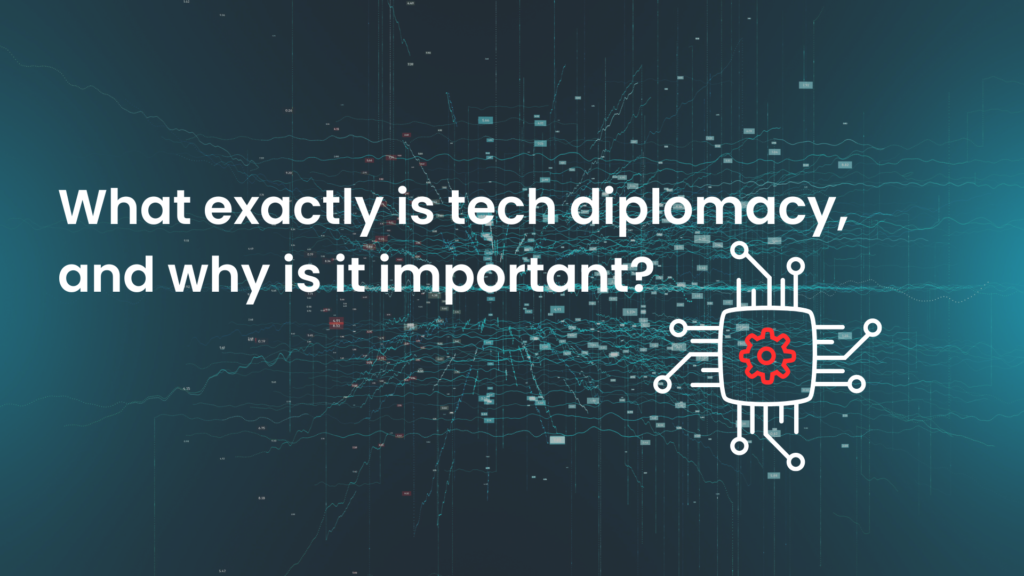Tech diplomacy refers to the use of technology and related policies to enhance diplomatic relations and achieve foreign policy objectives. It involves the use of technology to promote economic development, cultural exchange, and collaboration in science, technology, engineering, and mathematics (STEM) fields between nations.

Tech diplomacy matters because it has the potential to promote global peace and prosperity by facilitating cooperation and understanding between nations. Technology can be used to address global challenges such as climate change, cybersecurity, and public health. Through tech diplomacy, countries can work together to share knowledge, resources, and expertise to develop innovative solutions to these challenges.
Tech diplomacy can also help to promote economic growth and create new job opportunities by facilitating trade and investment in technology-related industries. This can help to strengthen relationships between nations and build trust between governments and citizens.
Overall, tech diplomacy is becoming increasingly important in our interconnected world, where technology plays a central role in our daily lives and has the potential to shape the future of our societies. By leveraging the power of technology to build bridges between nations, we can promote global cooperation and work towards a more peaceful and prosperous world.
Tech diplomacy refers to the use of technology and innovation to foster positive relations between countries and promote global cooperation. In today’s world, technology has become a driving force for economic growth and development, and it has increasingly become an important aspect of international relations. Here are some reasons why tech diplomacy is important:
Overall, tech diplomacy is important because it offers a way for countries to work together on issues of mutual interest, promote economic growth, and build trust and understanding between nations.
Technology is becoming an increasingly important component of geopolitical, economic, and industrial objectives.Even before the pandemic drove up adoption rates of technology, Accenture’s Chief Technology Officer, Paul Daugherty, declared: “Every firm is a technology company – some simply don’t realise it yet.”
We’re now seeing the growth of govtech ecosystems, with tech start-ups and small- to medium-sized businesses providing goods and services to help administrations’ digital transition, allowing governments to better serve the public. In 2023, global government IT spending is expected to surpass $600 billion.
Nevertheless, with the promise of technology comes new governance difficulties, which means that policymakers are playing catch-up when it comes to regulating technology. Consider the proliferation of generative AI – both its potential to revolutionise employment and specific activities, as well as the threats it brings, ranging from copyright infringement to misinformation.
Governments are increasingly sending tech diplomats to Silicon Valley to speak directly with the corporations at the forefront of the Fourth Industrial Revolution on matters relating to human rights and national security.
Until 2017, state-centrism dominated technology-related foreign policy, with an emphasis on national security and economic connections. As the area of tech diplomacy has matured, the commercial sector and civil society are increasingly recognised as players.